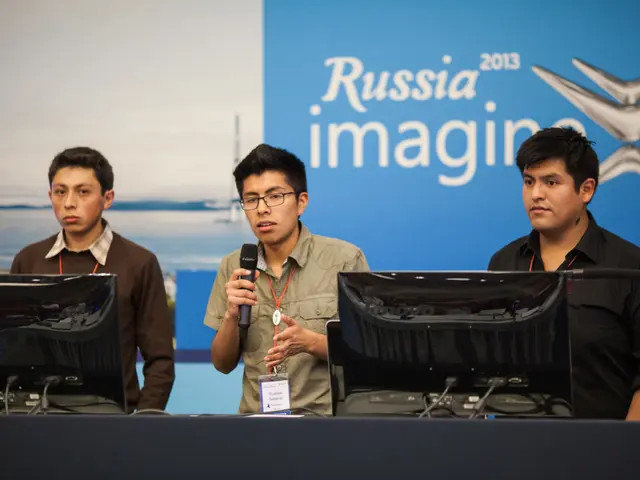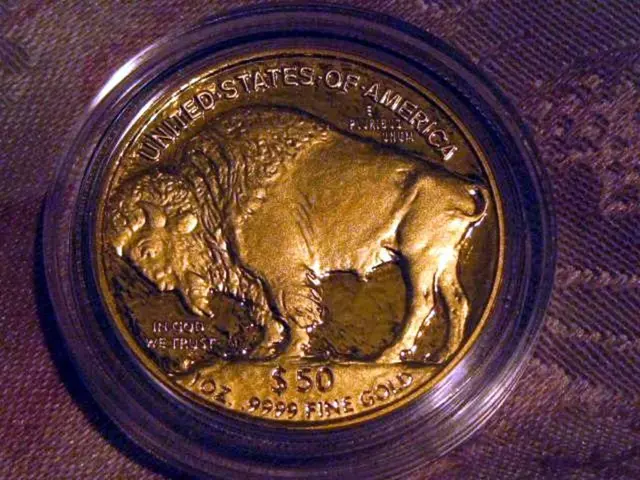Nvidia Urges U.S. Government to Loosen AI GPU Export Regulations, Yet Trump Administration Intends to Strengthen Restrictions
Jensen Huang, Nvidia's CEO, has once again urged the U.S. government to reconsider the previous administration's AI processor export regulations, claiming these restrictions hinder American companies' global market participation. However, the current administration appears to differ, with plans to tighten AI GPU exports as bargaining chips in trade negotiations, as reported by Reuters.
At the Hill and Valley Forum, Huang expressed his concerns, "The world has changed fundamentally since the previous AI diffusion rule was released. We need to accelerate the diffusion of American AI technology around the world, so the policies and encouragement from the administration really need to be behind that."
Nvidia's star product, the H100, faces restricted access beyond the U.S. and its allied nations (known as Tier 1) under the Biden administration's AI Diffusion framework. Tier 2 countries face annual limits, usually capped at around 50,000 units of H100-class processors. However, firms from Tier 2 regions can import up to 1,700 units per year without a license - these smaller purchases don't count towards the national cap. But countries under arms embargoes, like China, Russia, and Macau, face almost complete restriction on advanced AI processors.
Criticizing the AI Diffusion Rule, Nvidia has argued that the restrictions will foster competition in hardware, software, and standards - particularly those developed in China. As such, Nvidia and other American hardware developers have been advocating for change, although it seems the desired change might not occur under the current administration.
The proposed changes could see the tiered model replaced with a global licensing regime involving formal agreements between governments. This would enable the U.S. to negotiate access on a case-by-case basis, offering more leverage in trade discussions. Officials are also contemplating lowering the volume of chips that can be exported without formal approval, from 1,700 units to as low as 500 units.
Former U.S. Secretary of Commerce Wilbur Ross confirmed these changes are under consideration, though no decisions have been finalized as yet. If implemented, Nvidia's success would no longer be determined by its GPU's capabilities and performance but by trade deals sealed between the U.S. government and other nations. And as Huang admits, "China is not behind anybody, China is right behind us, we are very, very close." Huawei, just behind Nvidia, is considered one of the world's most formidable technology companies in computing, networking technology, and software capabilities, making them a serious contender in the race for AI advancements.
Stay informed with the latest news, analysis, and reviews from Tom's Hardware by following us on Google News. And don't forget to sign up for our newsletter to get the best of Tom's Hardware straight into your inbox.
TL;DR
- Jensen Huang calls for the U.S. government to revise AI processor export restrictions, allowing American companies to fully participate in global markets.
- The current administration disagrees, planning to further restrict exports as bargaining chips in trade negotiations.
- Nvidia advocates for change, with the proposed changes involving a global licensing regime and potentially lowering the volume of chips that can be exported without formal approval.
- If implemented, Nvidia's success would be highly dependent on trade deals between the U.S. government and other nations.
- China's Huawei, just behind Nvidia, is seen as a formidable competitor in the race for AI advancements.
In the dispute surrounding Nvidia's call for loosened AI export regulations, the CEO, Jensen Huang, has emphasized the need for updated policies to allow the acceleration of American AI technology diffusion worldwide, given the evolving global landscape. This change could lead to a global licensing regime, potentially requiring case-by-case negotiations between governments and offering more leverage in trade discussions, given the proposed reduction in the volume of chips that can be exported without formal approval. As Huawei, one of the world's leading technology companies, is considered a formidable competitor in the race for AI advancements, the success of Nvidia may become increasingly dependent on trade deals between governments.
Policymakers contemplate the implementation of such changes, as technological progress and competition in AI hardware, software, and standards are at stake, with China emerging as a significant competitor alongside Nvidia. The latest general news reports suggest that these proposed changes in policy-and-legislation will heavily impact the technology sector, particularly American companies, by altering the export regulations for advanced AI processors.








